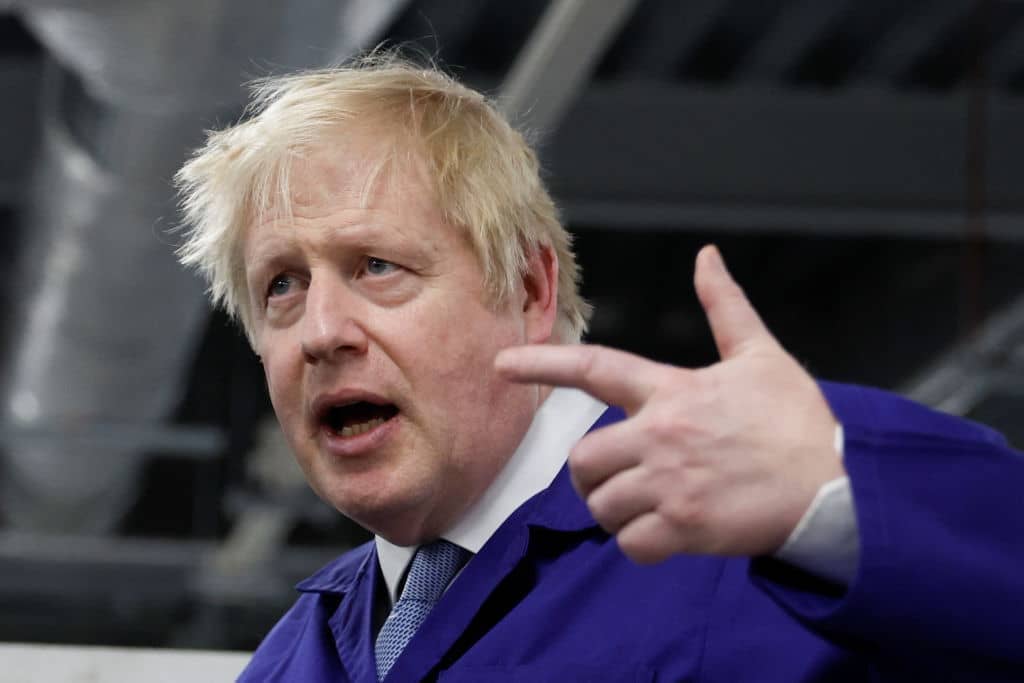When it comes to addressing the cost of living crisis, the government has, so far, responded with a range of bad solutions. The energy price cap is being increased by £700 per household, interest rates have gone up for a second month in a row and the Bank of England is forecasting a two per cent drop in household incomes in real terms, the worst since records began in 1990.
In response, the Government has announced a package of confusing and ill-targeted measures. This includes council tax rebates, that will extend to some homes valued over £1 million, and a £200 discount on energy bills through loans to energy firms – funds that are meant to be clawed back from customers later when (or if) energy prices decline.
‘Socialists believe in raising taxes and then choosing to give it back in the form of discounts and rebates to selected people the government think need it,’ Conservative MP Peter Bone pointedly said in response to Chancellor Rishi Sunak.
HIs comments highlight just how politically toxic this cost of living crisis is for the government. At party conference, Boris Johnson proudly celebrated restricting immigration and rising wages. But this logic was always economically illiterate: inflation has spiralled well above incomes rises, meaning a real-terms decline in quality of life.
Rising prices are largely because of Covid-related supply chain shocks, global gas prices and lots of money printing
But what can be done by the Government to address the cost of living crisis? In the short term, not very much. The state is not responsible for everything. Much of what drives living costs – housing, electricity and water bills, food, entertainment and childcare – are outside the direct levers of ministers.
Rising prices are largely because of Covid-related supply chain shocks, global gas prices and lots of money printing, the last of which is the remit of an independent central bank. If the Bank of England took radical steps to tighten monetary policy it would not only risk jobs, but it would also not have much impact with inflation baked in for the next few years by earlier decisions.
The Government can try to alleviate some immediate stresses with tax cuts or direct handouts targeted at low-income earners. That would mean piling on debt and risks more inflation. Instead, the Government is pursuing convoluted measures, like the broad-based rebate to energy prices while other taxes increase.
Other steps could have a marginal, immediate impact. It would be helpful to reverse the National Insurance rise, particularly on the employer side, that is expected to push up costs for businesses, that will inevitably be passed onto consumers through higher prices. They could also cut ‘sin’ taxes, like those on tobacco, that are known to have a particularly regressive impact on lower income households.
With Brexit providing an independent trade policy, the British government could stop taxing our consumers with import tariffs on food and other goods. In a step to boost competitiveness, Switzerland is moving ahead with legislation to abolish customs duties on most industrial goods and to simplify other tariffs.
Consumer goods costs could also be reduced by cutting customs red tape and unilaterally recognising regulatory standards of equivalent nations – it is madness for the UK to not recognise goods produced in the European Union that follows precisely the same as our domestic standards. We could even address labour shortages, that are driving up the cost of essentials for many, by addressing the excessively costly immigration system.
To have a meaningful impact on cost of living, however, would mean undertaking some serious long-term policy reform. My colleague, Kristian Niemietz, identified almost a decade ago, that the ‘poverty lobby’ is obsessed with redistributive efforts, like extending housing benefits or increasing universal credit, that only add fuel to the fire. What we really need is policy that boosts the capacity of the economy to produce goods and services, which means lower costs and higher wages.
This means addressing the broken planning system that prevents enough houses being built where people want to live, thereby pushing up the cost of putting a roof over our heads, particularly for the poor. Childcare costs could be reduced by cutting onerous child-to-carer ratios, that are far above our European neighbours without producing a meaningful positive impact on children’s development. We also need to reform the broken energy market, that has been worn down by countless interventions — though this becomes quite difficult in the context of climate change commitments that inevitably drive up costs.
There would also be huge benefits from cutting the regulatory burden and reforming the tax system — along with lowering the overall burden — to limit the extent to which we discourage job creation, innovation, and households. In general, richer countries have less cost of living pressures.
But with so little focus on growth from this Government, and so much on redistribution, I’m not holding my breath.
Matthew Lesh is the Head of Public Policy at the Institute of Economic Affairs






Comments